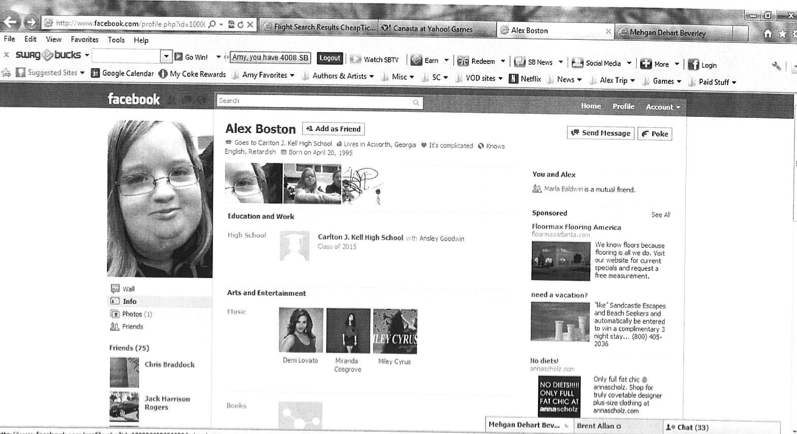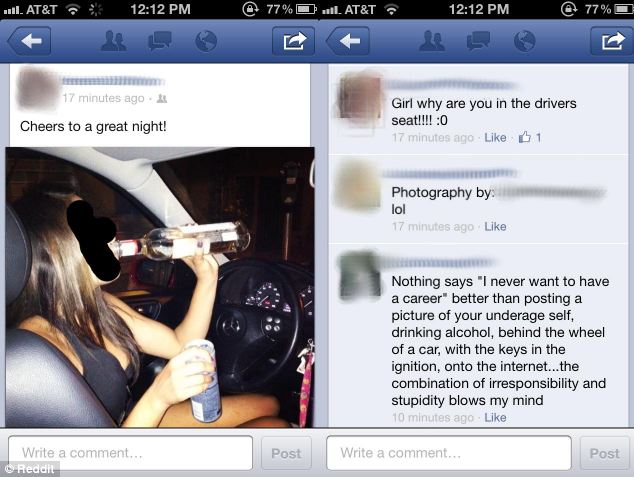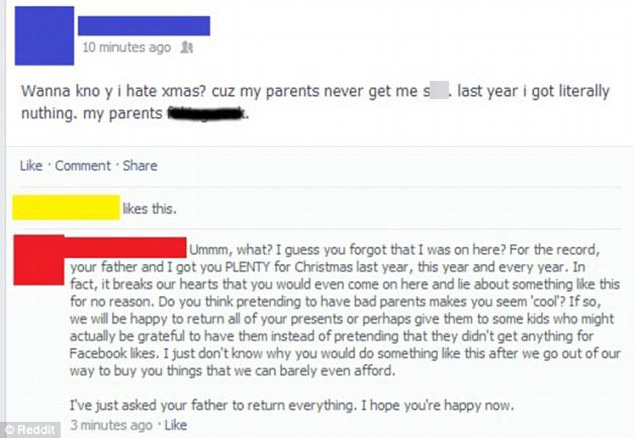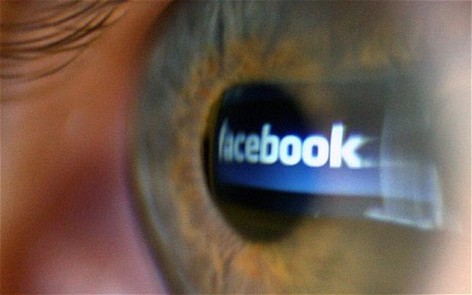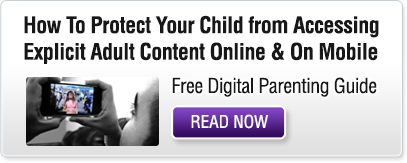Washable Dog Sofas – Easy to Clean, Cosy, and Built to Last
Launched in 2004 and now with over 1.2 billion users, there are very few people who don’t know what Facebook is. In Ireland, 60% of the population are on Facebook and it is a great way to keep in touch with friends and family by sharing updates, photos and videos of what is happening and interesting in your world.
In this parents guide to Facebook we will explain why kids like using it (and why they dislike it), what dangers you need to be aware of and how to advise and protect your child.
What age is it suitable for?
Facebook is restricted to 13 years or older.
Many kids join facebook at a younger age simply by making up a date of birth when registering for an account. There are estimates that around 7.5 million users are younger than 13 with some reports that there are 5 million younger than 10.
If your child is younger than 13 and has created an account you should definitely weigh up the risks and consider deactivating the account until they are older.
Why Do Kids like using it?
Tweens and Teens enjoy using it because;
- It’s a simple and fun way to keep up with friends.
- It’s easy to find people. Everyone is on Facebook which means that when a teen meets someone new all he has to do is search for their name in the search bar and he is very likely to find that person and they can become friends. It is then simple to chat and message that person.
- It helps to boost their social status amongst friends if they are seen as popular
- They can express and develop their identity.
- It can be addictive – many teens love to constantly keep up with what their friends are saying and doing.
Why are kids starting to dislike using it?
However, recent studies, including the Pew Internet & American Life Project, are suggesting that even though it is still the most used social network by teens, they are increasingly starting to dislike it because
- It’s full of adults, including their parents and grandparents, who can see their posts.
- There is a social pressure to be seen to have a lot of friends and for their posts to receive lots of likes. For many teens their popularity amongst their peers is often measured by the number of friends and the number of likes that their photos receive. This can be stressful and can affect their sense of self worth
- There is a lot of what teens call “drama” – where friends are posting bitchy or snide comments relating to relationships.
Here are some quotes from the Pew study of US teens in 2013
Female (age 19): “Yeah, that’s why we go on Twitter and Instagram [instead of Facebook]. My mom doesn’t have that.”
Female (age 14): “OK, here’s something I want to say. I think Facebook can be fun, but also it’s drama central. On Facebook, people imply things and say things, even just by a like, that they wouldn’t say in real life.”
Male (age 18): “It’s because [Facebook] it’s where people post unnecessary pictures and they say unnecessary things, like saying he has a girlfriend, and a girl will go on and tag him in the picture like, me and him in the sun having fun. Why would you do that?”
Female (age 16): “Because I think I deleted it [my Facebook account] when I was 15, because I think it [Facebook] was just too much for me with all the gossip and all the cliques and how it was so important to be– have so many friends–I was just like it’s too stressful to have a Facebook, if that’s what it has to take to stay in contact with just a little people. It was just too strong, so I just deleted it. And I’ve been great ever since.”
What dangers do parents need to be aware of?
The fact that most adults and parents are on Facebook can make it seem that it is a safe place for teenagers. However, there are some key risks that you should be aware which include;
- Being cyber bullied and victimised by classmates
- Other teens posting compromising photos or videos of your child taken at school
- Your child posting photos or information that could damage their online reputation
- Technology addiction – Becoming addicted to social media
- Young teens being exposed to inappropriate content because they are friends with much older teens or people in their twenties
1. Being Cyber-Bullied
We have all heard of cyber bullying but what exactly does it mean? Cyberbullying on Facebook doesn’t mean someone being criticised or put down as a once off event or a very occasional event. When someone is cyberbullied it means that they are regularly and consistently being criticised or mocked for their looks, weight, intelligence, style, grades, popularity and so on. This can take the form of;
- “friends” posting nasty comments on your child’s timeline saying they are “way too ugly” or asking “why are you so fat?” or “have you lost weight yet?”.
- “friends” posting an unflattering photo, taken on a camera phone at school, for all other classmates to see.
- “friends” posting a photo-shopped image of your child (with her head on the body of a dog or on the body of a nude woman or your child’s face distorted) and then tagging her so all her friends see it.
- Setting up a fake Facebook page in your child’s name, adding her photo and then sending out posts that are self criticising or bitchy about other students.
- Someone posting an invite to a party at their house and then tagging your child as someone “who is not being invited”
Example 1
Wired.com reported this example of Fourteen-year-old Alex Boston who sued her classmates after suffering from terrible bullying on Facebook. Two classmates allegedly created a fake Facebook account in her name, using a photo of her that they distorted. The account was also used to post a racist video to YouTube that implied that Boston hated African-Americans, and to leave crude comments on the Facebook pages of other friends, suggesting she was sexually active and smoked marijuana. According to the Child’s attorney, there had been no dispute between the teens prior to the bullying. “She just considers herself a normal, average seventh-grader,” “She had never been targeted or had something like this happen before.” According to the attorney, the alleged teen offenders told school officials that they just didn’t like Boston. “They said ‘she followed us around school too much.’ There was no real explanation, as is so often the case with these activities. Why kids do things to other kids is a mystery, and is for sure in this case.”
(Source: Wired.com )
Example 2
This Daily Mail article explains how teenager Emily Moore was bullied on Facebook
The bullies stepped up their campaign again via the internet.
‘As well as messages on my home page saying such things as “Stupid, stuck-up cow, we’re going to get you”, I could also see what they were saying to each other on their pages,’ says Emily.
‘I would sit there shaking, reading through all their vitriol. They would send messages to each other saying they were going to “Sort me out” and “Show me”.
‘I knew I shouldn’t look, as it made me so upset and scared, but checking their pages became an obsession. I would log on several times a day because I wanted to see what they were planning.’
Emily tried to block the girls from accessing her page – but they would send messages asking if she was scared of them.
‘They just kept on and on. It felt as if I couldn’t get rid of them. In the end, I realised I had to just shut down this account because it was making everything a hundred times worse. I just couldn’t take reading their messages any more.’
Example 3
This thirteen year old girl in Australia moved schools after being bullied on Facebook. Another pupil setup a fake account pretending to be the 13 year old girl.
Example 4
This news report describes how six students were arrested for bullying on Facebook.
How common is this and what is the impact?
Studies have found that young people are twice as likely to suffer cyber bullying on Facebook than on any other social networking site (Survey by Ditch The Label 2013). As reported in The Daily Mail, the survey found that 54% of young people surveyed who used Facebook reported that they have experienced bullying on the network . Victims say the worst cyber bullying is having catastrophic effects on their self-esteem and social lives, as well as damaging their future prospects by crushing their optimism.
2. Other teens posting compromising photos or videos of your child – which can embarrass them, and damage their online reputation.
The study by Pew Internet and American life found that
- 24% have had private or embarrassing info made public without their permission
- 22% have been cyber pranked
The most serious example of this is when a private / intimate photo that was meant only for a boyfriend gets forwarded on to that boys friends and then ends being posted by someone on Facebook as titillating fun. (see our Parents guide to sexting)
Most other instances might start as harmless pranks and photos taken at school but once the image is posted it never truly disappears and it forms part of your child’s online reputation which can later be seen by colleges or employers when your child is applying.
3. Your child Posting photos or information that could damage their online reputation
Lots of teens post photos or status updates that they shouldn’t. For example, this one.
And this post is a good example of teens not thinking about who is on their friend list and who can see what they are posting
Image from Daily Mail
To get a feel for the kind of things people post on Facebook without thinking how it makes them look, visit a site called www.weknowwhatyouredoing.com which shows the latest posts people have sent out which refer to being hungover or taking drugs or hating their boss.
These people have not looked at theprivacy settings on their Facebook Accounts so when people search for them, including potential employers, they can see all of these posts. 45% of employers say they search for a candidates social media accounts when they apply for a job .
4. Technology addiction – Becoming addicted to social media
Over the past five years the explosion in usage of smartphones / tablets and social media has complicated everything. A typical parent is now faced with kids who are glued to their smartphones, constantly messaging on snapchat, Twitter, Instagram and Facebook while also spending more time gaming on Xbox or Playstation. With increased screentime there is less family interaction and less time spent “playing outside” or interacting with friends in the real world. For many parents there can seem to be a divide between them and their kids lives – where their kids want to spend more and more time alternating between phone, tablet, xbox, Wii, DSi and for some kids the usage of social media and technology either borders on addiction or has tipped over into addiction. We are the first generation of parents who have faced this and for many parents it is hard to know where to start. (Read our parents guide to tech addiction )
The Faculty of Psychology at the University of Bergen in Norway has found that Facebook addiction is real, and that teens are the most susceptible to addiction.
If you are concerned about whether your child might be becoming too “addicted” to Facebook and social media, some generally accepted warning signs include
- Your child is constantly checking the facebook to see the like count on their updates.
- When you ask your child to reduce the amount of time they are spending there is conflict and it can seem like a power struggle.
- Your child spends more and more time ignoring what is happening in the room in favour of using Facebook on the smartphone.
- Your child gets angry, withdrawn or irritated when told to stop using social media.
- Your child feels anxious when separated from the phone.
- Homework and studying is taking a backseat to Facebook and grades are suffering.
5. Young teens being exposed to inappropriate content because they are friends with much older teens or people in their twenties
If your thirteen year old has joined Facebook and has 200 friends, do you know who those friends are? Teens are quick to friend anyone and their popularity is often judged by the number of friend they have. It is very possible that they have “friends” who are 18-19 years old with their updates going into your child’s newsfeed.
However, what a typical 18-19 year old shares on Facebook is inappropriate for a 13 year old as it would be very typical to share nude images, adult humour etc.

 Viewing Adult Content
Viewing Adult Content Being Cyber Bullied
Being Cyber Bullied Sexting
Sexting Technology Addiction
Technology Addiction Online Grooming
Online Grooming
